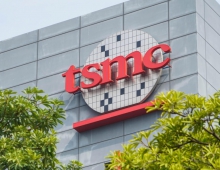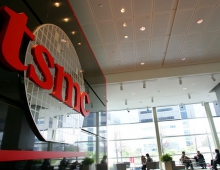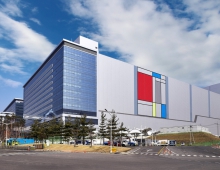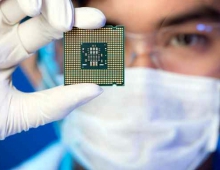
TSMC to Begin Research on 2 nm Chip Manufacturing Nodes
According to taiwanese media, TSMC is expected to build a 2 nanometer (nm) technology factory at its 3 nm facility in Hsinchu, Taiwan.
The company's plan is to complete the 3 nm facility by 2021 and begin 3 nm mass production in 2022. The 2 nm node could become operational two years later. Chinese TechWeb reports that TSMC spokesperson Zhuang Zishou confirmed the 2 nm node facility in Hsinchu.
Meanwhile, two of the world’s largest foundries— TSMC and Samsung announced in April progress in their 5 nm manufaacturing processes. TSMC said its 5 nm manufacturing process is now in what’s called “risk production”. Samsung followed made a similar claim.
TSMC says its 5 nm process offers a 15 percent speed gain or a 30 percent improvement in power efficiency. Samsung is promising a 10 percent performance improvement or a 20 percent efficiency improvement. Obviously, the compared, with the sometimes 50 percent improvements of a decade ago, Moore’s Law is not what it used to be.
The 5 nm node is the first to be built from the start using extreme ultraviolet lithography (EUV). With a wavelength of just 13.5 nm, EUV light can produce extremely fine patterns on silicon. Still, some of these patterns could be made with the previous generation of lithographic tools. This means that those tools would have to lay down three or four different patterns in succession to produce the same result that EUV manages in a single step.
At 5 nm, the foundries are thought to be using 10 to 12 EUV steps, which is alomost the one third of the steps they would require if they could use the older technology.
Before moving to the 5 nm, both Samsung and TSMC foundries are expected to offer a variety of technologies with incremental improvements, in what they’re calling a 6 nm process.
Samsung and TSMC are the only players in the high-end EUV chip making market. GlobalFoundries gave up at 14 nm and Intel, which is years late with its rollout of an equivalent to competitors’ 7 nm, is thought to be pulling back on its foundry services.
Recently, Samsung managed to scoop important deals involving Nvidia’s upcoming Ampere GPUs and Qualcomm’s next gen Snapdragon 865 SoC.




















